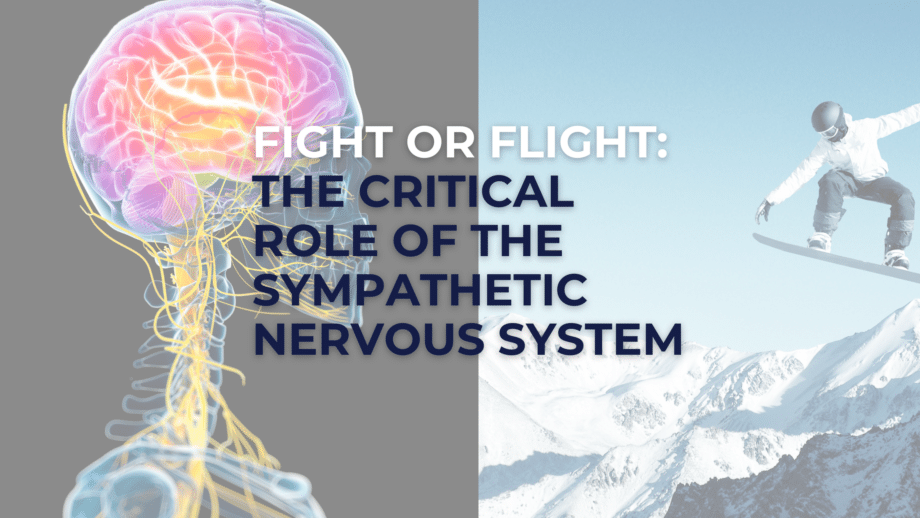The sympathetic nervous system (SNS) is one of the two main components of the autonomic nervous system, the other being the parasympathetic nervous system. While the parasympathetic nervous system is responsible for “rest and digest” activities, the sympathetic system is all about “fight or flight.” It mobilizes the body’s resources under stress, signaling various organs to adjust their functions in preparation for rapid action.
Key Functions of the SNS:
- Support Heart Rate: Increases heart rate to improve blood flow and oxygen delivery to muscles.
- Adjusting Blood Pressure: Constricts blood vessels to increase blood pressure, supporting adequate blood supply to essential organs.
- Stimulating Adrenaline Release: Triggers the adrenal glands to release adrenaline and noradrenaline, hormones that heighten alertness and energy levels.
- Support Healthy Respiratory Rates: Expands airways to increase oxygen intake, crucial for supporting muscular performance.
- Modulating Sweat Production: Activates sweat glands to help cool the body during intense physical activity or stress.
Why Is the Sympathetic Nervous System Important?
The sympathetic nervous system’s ability to rapidly prepare the body for physical activity or danger is vital. It ensures survival by enabling quick responses to threats, but it also plays a significant role in how you interact with the world under normal conditions.
Daily Impact and Health Implications:
- Stress Management: Helps manage normal stress response.
- Physical Performance: Aids physical performance and endurance by optimizing the body for exertion.
- Thermoregulation: Assists in regulating body temperature in response to external and internal changes.
- Metabolic Regulation: Influences metabolic processes to increase energy availability during emergencies.
Quick Tips to Avoid Overactivating the Sympathetic Nervous System:
- Practice Mindfulness and Meditation: Regularly engage in activities that calm the mind, such as meditation or deep breathing exercises.
- Maintain Regular Physical Activity: Exercise consistently to manage stress and improve overall heart health.
- Ensure Adequate Sleep: Aim for 7-9 hours of quality sleep per night to help regulate stress and recovery.
- Eat a Balanced Diet: Focus on a diet rich in whole foods, and limit caffeine and sugar to stabilize energy and mood.
- Learn Stress Management Techniques: Incorporate stress-reducing practices like yoga, progressive muscle relaxation, or enjoyable hobbies.
Conclusion
The SNS is crucial not only for survival in acute situations but also for maintaining various physiological balances within the body. Understanding how to maintain a normal stress response and a healthy balance between sympathetic and parasympathetic activity can lead to better health outcomes and improved quality of life.
Remember, while it’s great to have a system that prepares you to face life’s challenges, keeping it in check is just as important!

